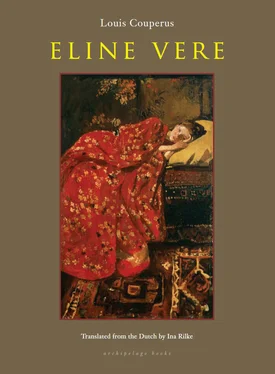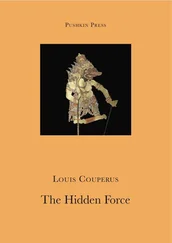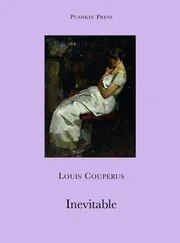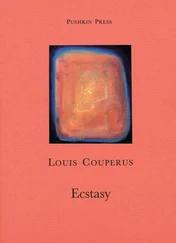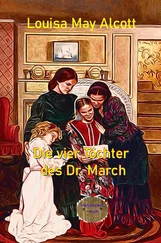Heredity is most evidently a preoccupation of Eline Vere . Great emphasis is placed on the two sisters’ inheritance from their parents. Madame Vere was, we are told, an intimidating, unlovable woman, and from her come Betsy’s blunted sensibility and her bossiness. Eline, as she herself believes, inherits from her father, a refined, dreamy, weak-willed, indecisive person. So far so convincing, but, graduate of the school of Zola as he felt himself, Couperus wishes us to go further. Both Eline and nephew Vincent exhibit the late Mr Vere’s fatal lack of robustness, which appears also, modified, in his younger brother, Daniel, with his fondness for luxurious surroundings and for the company of bohemian riffraff, flâneurs and useless expatriates. Eline’s readiness to fall in with her uncle and aunt’s way of living is a manifestation of her own share of this regrettable, determining trait, clearly associated in Couperus’s mind — as in Zola’s and, later, Thomas Mann’s — with the make-up of the artist. Only a family, and by extension a society, in decline devotes itself to art, would seem the inference.
Take by way of contrast the case of Paul van Raat, a virile young man and lively, despite those bouts of laziness and dissipation ascribable to the phase of life he is passing through. Paul, at two important points in the novel, is much taken with being an artist. It isn’t, we realise, so much the case of his not having enough talent to become one (though that statement is true enough), as his having rather too healthy a physical inheritance. The Van Erlevoort clan into which he befittingly marries is clearly an excellent genetic pool; descriptions of the youngest generation abound in tributes to their vitality and physical attractiveness. This can be darkly counterpointed by the case of Paul’s own nephew. His brother Henk has a child, Ben, by a Vere, and neither Henk’s rude health nor Betsy’s maternally received energy can prevent the likeable, indeed the imaginative little boy from being a backward child — a predicament poignantly rendered. Is this then another reason why Eline feels she cannot, must not marry Otto? She could not give that splendid specimen of normality a satisfactory child who would one day himself continue a strong line.
For me this aspect of Eline Vere is its least convincing, perhaps because it is not sufficiently thought out. Moreover — very unlike any production of Zola’s — the novel does not allocate to the figures in the foreground any convincing background connecting them to society in the wider sense of the term. The occupations of Paul and Otto, who do indeed become responsible public servants, are perfunctorily rendered; they interest us because they fit into the overall formal pattern, rather than because they have much validity in their own right. With regard to the specific instances in the novel of biological inheritance, Couperus has nothing like Zola’s command of detail, his intensity of interest in, and insight into, specific cases. Ben van Raat’s backwardness, like Eline’s concluding helpless capitulation to psychic and physical illness, smacks of literature — if aided by sincere human sympathy — rather than life studied scientifically by the author himself. But there is surely another factor at work here.
Though Couperus found in his wife Elisabeth a veritable model of companionship and unsparing support, their union is generally assumed to have been a marriage blanc . The very idea of procreation horrified Couperus whose erotic inclinations — and practise — were, by general agreement now among experts on the writer, homosexual. Thus Eline’s increasing non-progenitive detachment from her society can be seen as a correlative for Couperus’s homosexual position. And homosexuality must stand behind the novel’s most baffling couple, Vincent Vere and Lawrence St Clare.
For whatever else can it be that holds these two men together, so that they are in constant communication when apart, and are prepared to travel together for many months without significant interruptions? The one is an American ‘chevalier d’industrie’ — which may be a polite way of saying he is a successful businessmen not above a sharp piratical manoeuvre or two — the other a drifter with ideas of himself way above his actual accomplishments. St Clare thinks of Vincent as a brother, he says, yet his Vincent is not the man we ourselves have come to know. He tells Eline:
‘Most people have the wrong idea about Vincent. They think him lazy, capricious, egotistic, and refuse to see that he is simply ill. I can’t think of anybody else who would be capable, despite suffering from such ill health, of sharing so much of his talent and intelligence with the rest of mankind.’
She had always had great sympathy for Vincent, but had never seen him in this light.
‘Yes, I believe you are right!’ she said.
What a contrast to how Otto van Erlevoort sees Vincent!
Vincent Vere has told St Clare so much already about his cousin (combining the complimentary with the compassionate) that already, before their actual meeting-up in Brussels, the latter has thought of her as an ‘unknown sister’. Hence his intense solicitude on her behalf, his unique ability to elicit from her truths about her deepest feelings (including her great grief for her friend Jeanne Ferelijn), his insistence, which she accepts, that she keep apart from the dubious crew with whom her uncle and aunt socialise, and his proposal of marriage, which, though moved, she refuses. What kind of marriage can St Clare be offering Eline? Primarily, we feel, one of concerned companionship such as Louis Couperus and Elisabeth Baud enjoyed, though the sincerity of not just his feelings but of his regard for her is not in doubt. Watching Eline improve in Brussels, largely because of his own caring converse with her, he has begun to feel
a great longing to dedicate myself entirely to you, because I thought, if I can do that, she might be able to shake off her gloomy view of life and be happy again. My darling Elly, you’re still so young and you think it’s too late for things to change. Don’t think like that any more: put your trust in me, then we can set out together to discover whether life really is as dismal as you believe.
Perhaps there is too much of the crusader, of the benevolent pedagogue and too little of the lover in this declaration, though we cannot but respect the man for making it — just as Eline does, though it also makes her weep. But she has to decline, continually tormented as she is by her memories of her failed engagement to Otto (broken off by herself, after all, for intimate, never wholly articulated reasons). Perhaps in her refusal Eline is acknowledging that, outside Ouidaesque fantasies, the whole domain of the carnal is not congenial to her, just as it apparently was not to her creator. In Couperus’s mind sexuality results in misery as much as it does in children, and even the latter (from whom he so recoiled) rarely quite vanquish the former. It is an essential but terrible part of humankind’s lot that it has not yet arrived at an ability to cope adequately and painlessly with its sexual instinct, evolution being as yet incomplete in this respect. And evolution is the key word here.
For Couperus was of the post-Darwin generation, quite unable to accept the explanations and consolations of orthodox religion, and obsessed, as though by a fresh discovery, by the distress, the mutual destructiveness inherent in existence itself, an awareness memorably expressed in the anguished personal writings of Darwin himself occasioned by his observation of the cruelty rampant throughout the animal world. It is the duty of the honest writer, according to this view, to face up to the bleakness, the terror, to the fact that what laws one can detect operating in life take no consideration of the feelings of those they control. Everywhere there is appalling waste, and waste is represented here by the sterile careers of Vincent and St Clare, by such an un-partnered woman as Emilie de Woude van Bergh, who deals with her plight by adopting a hearty, jolly persona, and, supremely, by Eline herself. That fine novelist of the American South, ten years Couperus’s junior, Ellen Glasgow (1873–1945), had a similar weltanschauung both compounded and aided by a not dissimilar refined sensibility. In her novel Virginia (1913) Glasgow writes of a young man destined never to become the writer he dreams of being:
Читать дальше
